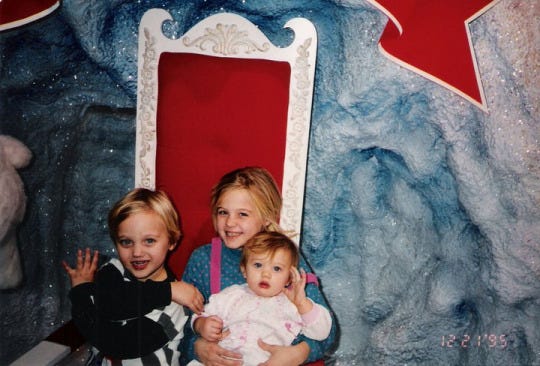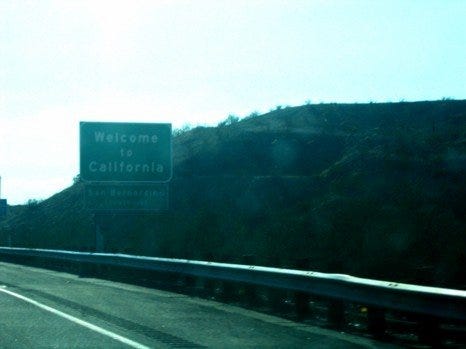home, definition
As I suspect I’ve mentioned a time or twenty, I have a complicated relationship with my current residence. It’s only fairly recently that I’ve even been willing to refer to it as my home town. Calling it my “home town” has a weird feeling to it. It sounds like a fictional story I’m telling.
Part of this is a byproduct of my unclear sense of what truly constitutes my “home town.” I lived in four cities in three time zones before I got my driver’s license. I grew up referring to “home” as whichever place had come before the one I was presently in. A “home town” was this weird idea of belonging that I never quite had and it was easy to romanticize this notion that it was merely a thing I’d left behind. Surely I belonged in the last place.
Although, I’m not sure I ever really tried to claim Bergenfield, NJ beyond blaming it for the peculiar accent I had as a little kid. (I was oblivious to this until a California classmate told me I spoke funny. I went home and read Dr. Seuss books out loud to myself and spent a brief period incredibly conscious of my pronunciation of the letter R.)
I only lived in Chicago for a few non-consecutive years, but as the city of my birth and the land of holidays, it acquired a special mythology. Family, vacations, and adventures lived there. It was a real place, a proper fixture in my life, but always fundamentally one of escape. It was hard not to imagine (optimistically) that as the place I belonged. I never went to summer camp as a child, so I can’t be sure, but I assume there’s a similar feeling of a magical, welcoming home for kids who returned to the same camp year after year.

Los Angeles is probably my least disputed claim, having spent ten whole years of my childhood there. I returned for long (escapist, equally summer-camp-like) stays after we left. I eventually made my way back there as an adult, albeit for a short time. That is the place where the ghosts of my lemonade stands, training wheels, and first crushes all hang out. It’s the land the contains the park I went to when I filled my backpack and “ran away from home.” (Said park was still inside our gated community. I didn’t really get how the concept worked.) Surely that is home.

There’s always an awkward guilt in that, though. Didn’t I spend a decade pretending to belong to somewhere else? Isn’t a little shameful, then, to try to own this now, after having taken it for granted for so long?
The move to Missouri was an unwelcome one. I have now declared it my official address on government documents for a little over eleven years. It now beats out my address in California in that respect, and that title will only grow more entrenched. Of course, that includes nearly six collective years in which I was actually living in far away places. (Including Los Angeles.)
The first time I had to navigate this identity was a political science nerd summer school I attended before my senior year of high school. It was at Northwestern, so there were Chicago kids aplenty. That city belonged to them more than it belonged to me. I certainly couldn’t claim the residence I so loathed, leaving me to insist upon Los Angeles. It happened again in college, only there it was more complicated. My school was primarily east coasters, but I certainly wasn’t the only one from LA or Chicago. The fact that this town belonged to me by a sort of default — that there was nobody else to claim it — hardly endeared it to me.
I suppose that for anyone who grew up in the same place it sounds silly to obsess over this, but I imagine that anyone who has moved around understands the awkwardness I’m referring to. “Where are you from?” is a pretty common introductory question. (And vastly preferable, in spite of all of this, to, “What do you do?”) How you answer it has all sorts of implications, not just for this annoyingly introspective identity question. Nobody really cares to hear my stupid explanation of the various times my family moved, so I’ve always got to pick a place. It’s weird if, later on, you casually reference another of those “homes” in conversation.
The internal struggle over which place belonged to me was, it now seems, easier to me than my current aversion to that question. I used to hate it because of this fear that I didn’t have the right to any particular place. It’s now the opposite. I struggle with that question because they are all part of me. They are all part of where I’ve been and, by extension, who I am.
It was on those terms that I gradually started to accept this place. There are still some insurmountable hurdles. It will never be an ideal cultural fit: the godless liberal in the land of high school football fanaticism and Todd Akin supporters aplenty. There are some grudges that can be laid to rest, but never fully forgotten. It’s never going to be the endgame destination.
But it’s there. It’s there in the discomfort I feel when outsiders — ostensibly more “my people” — say things about these people that they’ve never met, that they can’t possibly know. This is home too, however begrudging a pair we might be.
Though I struggle to declare where I am “from” in a singular answer, I do know where “home” is. I have always found ways to make home a place inside myself. I had imaginary friends and adventures to carry with me as a child. I’m immensely grateful for all the different places and people that I have been able to bring into that internal universe. I only wish I’d spent less time fighting it, but maybe that’s part of what helps me appreciate it now.